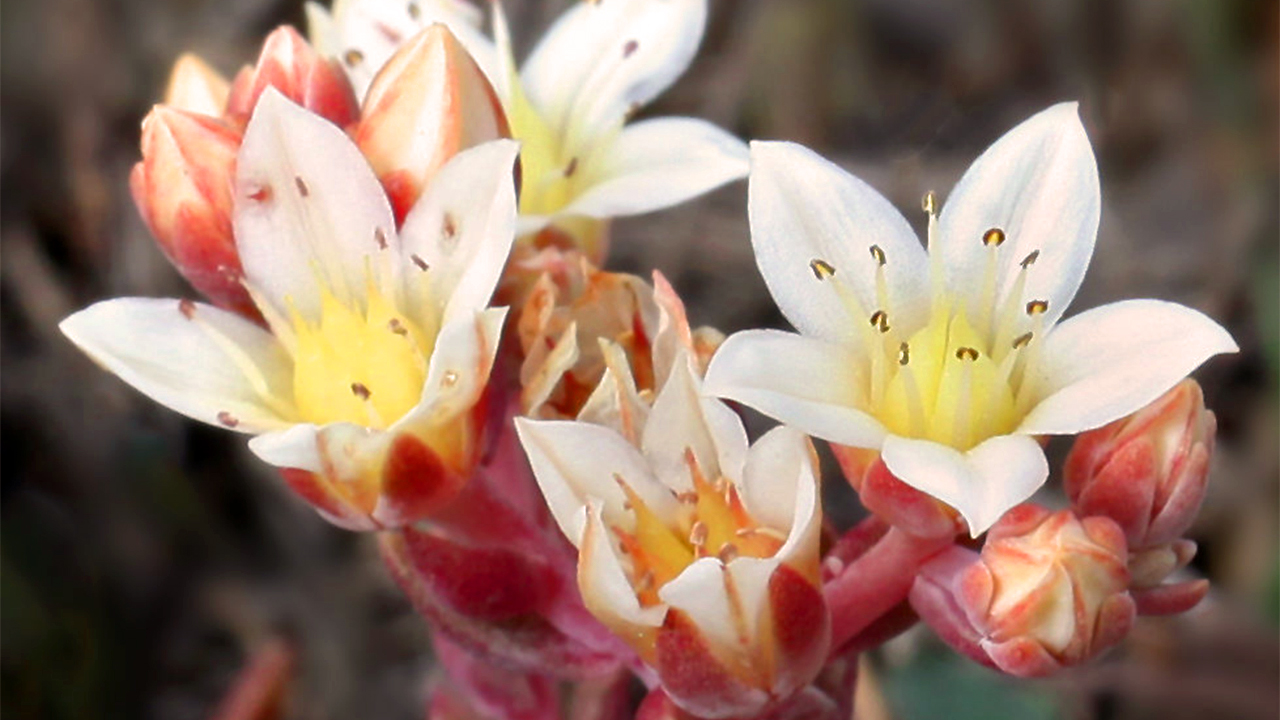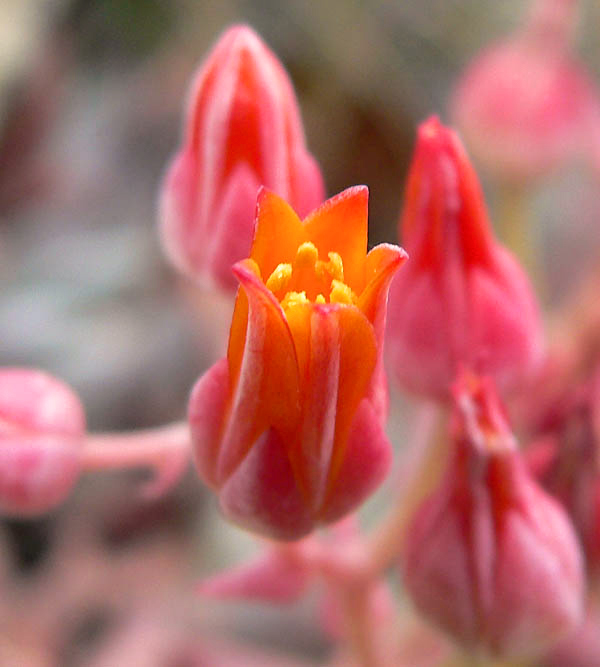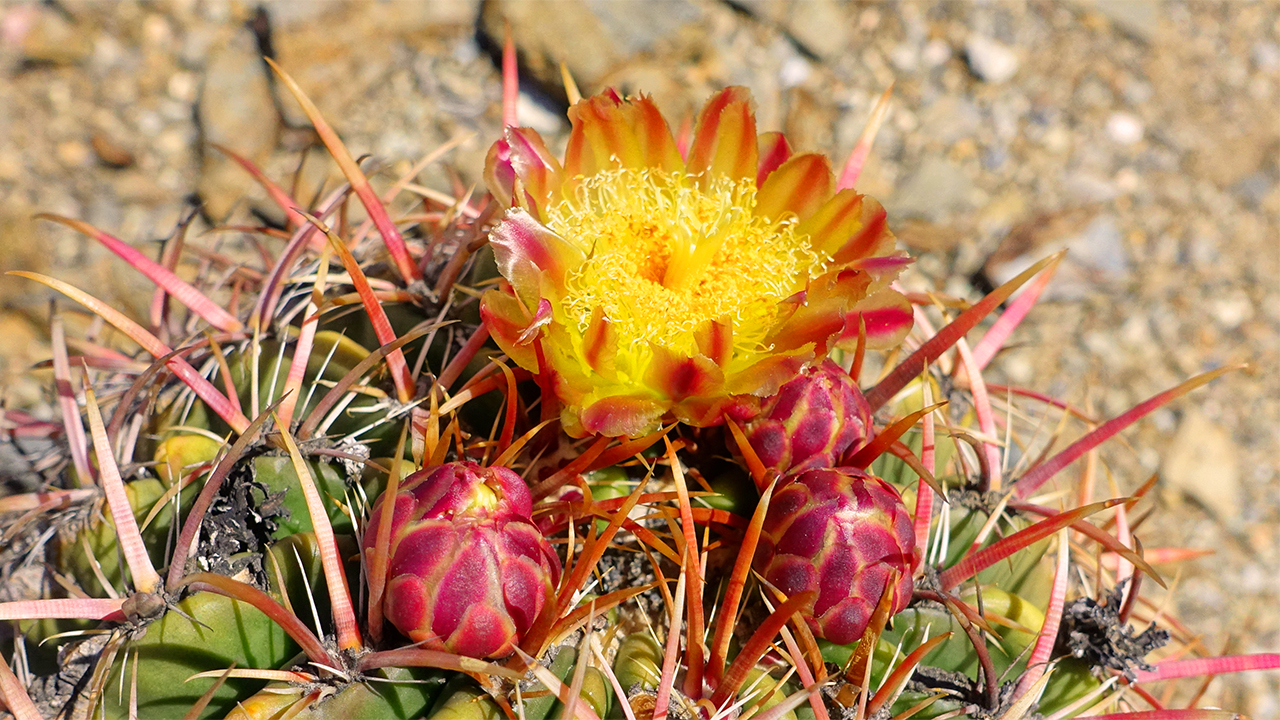California, a land known for its diverse climates and unique ecosystems, is also home to an array of rare succulents.
These plants, which have adapted to survive in some of the state’s most challenging environments, are as beautiful as they are resilient. From the foggy coasts to the arid deserts, these succulents form a vital part of California’s botanical heritage.
Among the rarest succulents are the Dudleya species, often referred to as “liveforevers.” These plants are found clinging to rocky crevices and thrive in the coastal bluffs and mountain ranges. Dudleyas are particularly notable for their rosette shapes and vibrant colors, ranging from bright greens to deep reds. The Dudleya cymosa, with its stunning orange-red flowers, is a sight to behold but is unfortunately targeted by poachers due to its unique beauty.
Sponsored
The San Diego Barrel Cactus, Ferocactus viridescens, a rare species, is endemic to California’s coastal sage scrub and chaparral environments. It is characterized by its cylindrical shape, which can grow up to two feet in height, and its vibrant yellow flowers that bloom in the spring. The San Diego Barrel Cactus is considered rare due to habitat loss and is listed as a species of concern.
The conservation of these succulents is crucial not only for the preservation of California’s natural beauty but also for the ecological balance. Organizations and state parks are implementing measures to protect these plants, including habitat restoration, poaching prevention, and public education campaigns. Botanical gardens and conservatories play a significant role in preserving rare species by cultivating them in controlled environments.
The rare succulents of California are a testament to the state’s rich biodiversity, reminding us of the beauty and resilience of nature. The state’s rare succulents are much more than just plants; they are symbols of resilience, beauty, and the intricate balance of ecosystems. Their survival and prosperity depend on our actions today, highlighting the importance of conservation and respect for the natural world.
Sponsored
Discover Beautiful Flowers, Expert Gardening Tips & Interesting Plant Science!
By submitting this form, you are consenting to receive marketing emails from: . You can revoke your consent to receive emails at any time by using the SafeUnsubscribe® link, found at the bottom of every email. Emails are serviced by Constant Contact

About The Author
John Bagnasco has been in the gardening industry for over 50 years, starting with a horticulture degree from Michigan State University and following a stint at Frank’s Nursery and Crafts in Detroit.
After publishing his first book “Plants for the Home Vol. I” in 1976, he moved to California to become regional manager and buyer for the Nurseryland division of Sunbelt Nursery Group.
He then became the head buyer for Armstrong Garden Centers based in Glendora, California. John had a part-time affiliation with Creative Promotions for ten years before joining them full-time in October 2000 as a senior editor and radio personality for Garden Compass.
John has also taught horticulture classes at Palomar College and San Diego State University.
He is the host of the DVD “The Essential Guide to Roses,” which also features Bryan Main and Bruce and Sharon Asakawa.
His most recent book is “Planting Designs for Cacti and Succulents”.
Currently, John is a co-host on “Garden America,” an interactive live gardening show that additionally provides podcasts of the broadcasts accessible on all major platforms.
You can contact John here.



